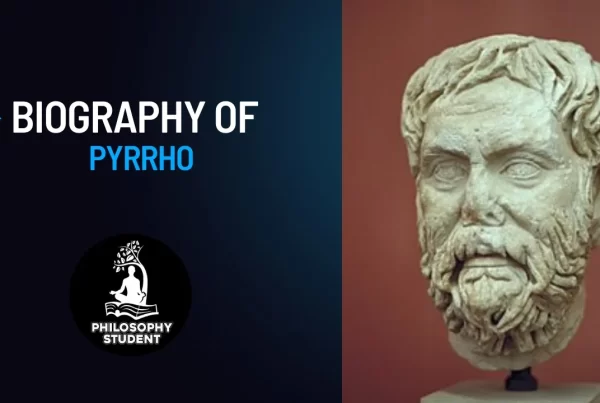Stan Baronett, Logic (Oxford University Press)
This is one of several comprehensive texts, in that it combines what is typically taught in critical thinking and formal logic courses
Barwise, Etchemendy, and Barker-Plummer, Language, Proof and Logic (Center for the Study of Language and Information)
Like some other formal logic texts, LPL’s focus is narrower than those that include material typically taught in a critical thinking course. In this text, the focus is entirely on formal logic systems. Students studying linguistics, computer science, math, and philosophy may encounter this text, which is often used in introductory and upper division logic courses.
Irving M. Copi and Carl Cohen, Introduction to Logic (Routledge)
Commonly known as the Copi book, this is another of several comprehensive texts, in that it combines what is typically taught in critical thinking and formal logic courses.
Harry J. Gensler, Introduction to Logic (Routledge)
Gensler’s book is yet another of several comprehensive texts, in that it combines what is typically taught in critical thinking and formal logic courses. It also includes chapters on modal, deontic, and belief logics, along with a history of logic.
Merrie Bergmann, James Moor, and Jack Nelson, The Logic Book (McGraw-Hill)
This is another formal logic text whose focus is narrower than those that include material typically taught in a critical thinking course. In this text, the focus is entirely on formal logic systems. Included in the book is a study of truth-trees.
Morris Engel, With Good Reason (Bedford/St. Martin’s)
Engel’s text focuses entirely on informal fallacies. For philosophy and non-philosophy majors alike, developing the skills to avoid getting taken in by bad reasoning, and to assess your own reasoning, pays dividends over a lifetime.
Patrick J. Hurley, A Concise Introduction to Logic (Cengage Learning)
Hurley’s widely used text is another of several comprehensive texts, in that it combines what is typically taught in critical thinking and formal logic courses.
Thinking About Logic: Some Concise Overviews and Classic
Texts
Aristotle, Categories, On Interpretation, Prior Analytics, Posterior Analytics, Topics, and On Sophistical Refutations. Aristotle developed the first system of logic (deduction), including methods of proof; studied the relation of language to logic; and distinguished between demonstrative and dialectical arguments, and imposters (sophistical arguments). While most introductory texts have adapted Aristotle’s work, it’s always worth tackling his original contributions directly.
George Boole, The Mathematical Analysis of Logic, Being an Essay Towards a Calculus of Deductive Reasoning (Basil Blackwell) and An Investigation of The Laws of Thought on Which are Founded the Mathematical Theories of Logic and Probabilities (Macmillan) Boole’s work in logic develops ideas first presented by Aristotle, but it was his work on algebraic logic that laid the foundations for modern computing science.
Augustus DeMorgan, “On the syllogism No. IV, and on the Logic of Relations”, Cambridge Philosophical Transactions 10, 331–358.
DeMorgan’s groundbreaking work on relations includes what we now call the DeMorgan’s equivalences, or DeMorgan’s rules, in propositional logic.
Gottlob Frege, Basic Laws of Arithmetic
Perhaps best known for his paper, “On Sense and Reference,” Frege also developed predicate logic, which is found in Laws of Arithmetic.
Benson Mates, Stoic Logic
Mates put the Stoics’ work on logic on the map, as it were. Aristotle is credited as the first thinker to develop a systematic logic, and his fame largely overshadowed the Stoics’ extraordinary achievements in logic. As Mates shows, their work in logic was more advanced than Aristotle.
Plato, Euthydemus
This dialogue is not as widely read as some others in Plato’s corpus, but it is an excellent example of the ethics of argumentation. In it, Socrates has a discussion with two brothers, Euthydemus and Dionysodorus. The ostensible subject is education, the initial question is, to whom should the education of the youth be entrusted? The brothers engage in flagrant bad reasoning, the disentanglement of which is good exercise.
Charles Hartshorne and Paul Weiss, eds., Collected Papers of Charles Sanders Peirce (Harvard University Press)
Peirce builds on the work of George Boole and Augustus de Morgan. Interestingly enough, Peirce’s work in quantification occurred at about the same time as Frege’s—the former in the United States, the latter in Germany.
Graham Priest, Logic: A Very Short Introduction (Oxford University Press)
At fewer than 130 pages, this text is, indeed, very short. It provides an overview of some important concepts learned in an introductory logic course, and includes a helpful glossary.
Bertrand Russell and Alfred North Whitehead, Principia Mathematica (Cambridge University Press)
Motivated advanced students, or those with a strong math background will find Russell and Whitehead’s work on mathematical logic and related topics both challenging and rewarding.




































